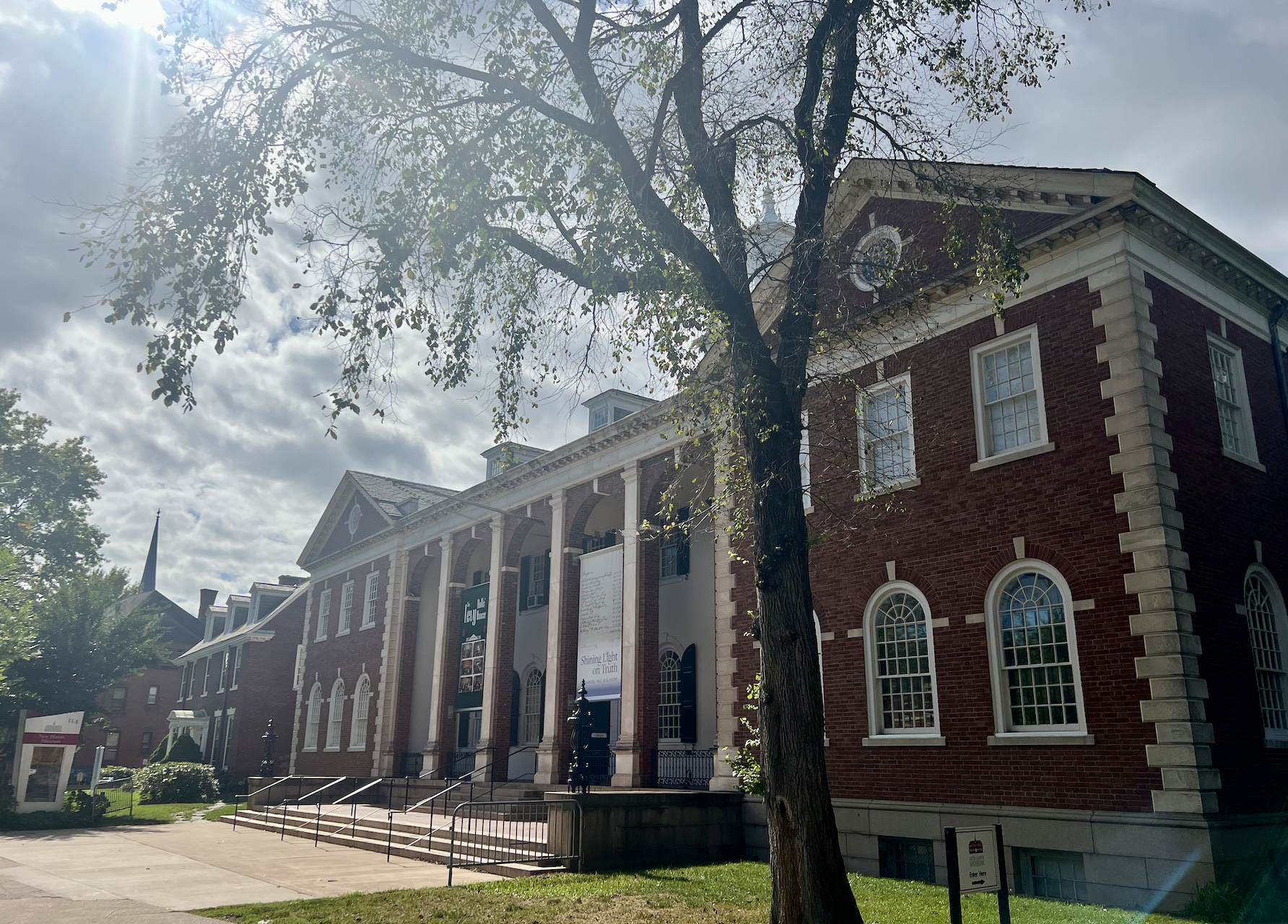New Haven Museum to welcome author Talia Aikens-Nuñez of “Men of the 65th”
A New Haven-based author will speak on her new book on the 65th Infantry Regiment, known as the Borinqueneers.

Alex Geldzahler, Contributing Photographer
On Thursday, Oct. 3, author Talia Aikens-Nuñez spoke at the New Haven Museum about the history of the 65th Infantry Regiment, also known as the Borinqueneers, comprised of Puerto Rican soldiers.
Based on Aikens-Nuñez’s book, “Men of the 65th,” the lecture provides insight into the unit’s history and struggles in the Korean War and at home, where they faced discrimination. The event, titled “Men of the 65th: Honoring Puerto Rican Borinqueneers at the New Haven Museum,” was at 6 p.m.
“I wanted to get a more hands-on feel for what happened many, many decades ago,” said Aikens-Nuñez about the book.
She told the News how her story began 10 years ago at a Christmas dinner, “My husband’s grandfather was there … and he said he was part of the famed 65th.” She explained how, despite studying history in college, she felt “pretty ashamed” at having “never heard of this unit.”
Inspired by Toni Morrison’s advice, “If there’s a book you really want to read, but it hasn’t been written yet, then you must write it,” Aikens-Nuñez embarked on an intensive research journey, including work at the National Archives and interviews with veterans, to record the story of the Borinqueneers.
She aims to share more pieces of history that receive less attention and hopes others “go digging like I did to find out more.”
Her focus on the 65th Infantry Regiment explores a fascinating aspect, though underreported, of the Korean War.
Professor Harry Franqui-Rivera at Montclair State University, who studies and writes about the Borinqueneers, explained that “coming back from WWII, the soldiers received a hero’s welcome parading through the streets of San Juan.”
The book and much of the press surrounding the 65th, however, relates to their involvement in the Korean War, which “gave them national iconic status for both the people of the island and the growing Puerto Rican communities on the U.S. Eastern Seaboard,” said Franqui-Rivera.
Despite being known for their exemplary abilities in training and on the battlefield, the regiment was subjected to dangerous assignments in Korea and continual discrimination within the military.
One notable instance, which Aikens-Nuñez highlights, was the court-martial of roughly 90 soldiers — the largest court martial of the Korean War — in the 65th for cowardice after being assigned a nearly impossible task on the front lines. Despite other white units similarly refusing combat, only the Borinqueneers faced legal repercussions.
Through their battles both abroad and against prejudice within the military, the unit eventually gained clemency and, after time, notoriety. Franqui-Rivera explained that “it took the effort of private individuals, scholars, community leaders and activists to recover their history, make it public and initiate a campaign to restore their stained record.” This resulted in the regiment being awarded the Congressional Medal of Honor in 2014.
Aikens-Nuñez’s lecture is also a part of the New Haven Museum’s NH250 programming, a series developed by the museum to complement the 250th anniversary of the signing of the Declaration of Independence.
“As we get closer to the anniversary of the Declaration of Independence, we wanted to take local, lesser known, inclusive stories and put those kinds of stories into our programming,” said Cynthia Riccio, the director of programs and planning for the New Haven Museum.
Riccio highlighted that Aikens-Nuñez’s talk was particularly attractive in being selected as part of the NH250 program because it was a “lesser-known story.”
With October commemorating Hispanic Heritage Month, the story of the 65th regiment was also deemed especially important by the New Haven Museum as it highlighted the rather unknown contributions of Latine Americans to the U.S. war effort.
Aileen Santiago ’28, a member of La Casa Cultural, told the News that she was pleasantly surprised at how the New Haven Museum was taking the stride to host an event that uplifts the voices of Puerto Ricans.
Although she had never heard of the 65th regiment before the announcement of the event, she found the nuanced story of the soldiers intriguing as the focus was on Puerto Ricans who were fighting for the very country that had imperialized their home.
With “Men of the 65th” richly detailing the Korean War and its aftermath, Aikens-Nuñez is also expected to draw a large audience of veterans from the New Haven military community.
Riccio told the News that the museum aims for the event to warmly welcome those who served and to highlight their contributions to their country and the major events of history.
“These veterans are getting older as well,” said Riccio. “It is important that we get their oral histories, talk to them and really capture that while we can.”
The event will be preceded by a reception, where attendees will have the opportunity to interact with the book and the New Haven Museum.
The New Haven Museum is located at 114 Whitney Ave.







